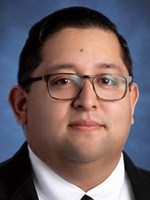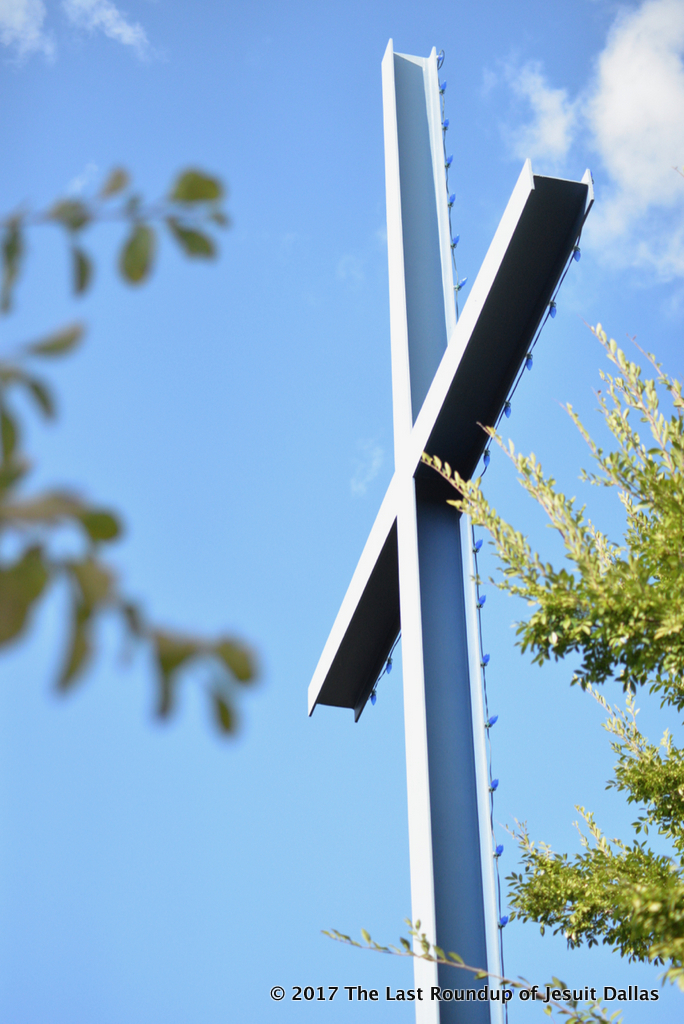An alumni of Jesuit, Mr. Ornelas is a very prominent member in our Jesuit society. Not only as a sophomore counselor, but also as a leader in the arrival of Jesuit’s up and coming cultural committee for both parents and students. Mr. Ornelas is also the current Director of Diversity.
So, I was able to sit down with him and ask him some questions. We spoke about his time at Jesuit, about goals of these new clubs, about cultural diversity in general, and about the future of Jesuit’s cultural clubs.
Q: What are the what, when, why, how of these meetings in general?
O:Over the summer, a group of faculty, staff, administrators, and coaches met to discuss and start looking at revising our diversity and inclusion goals. It was a really good group of people from Jesuit, teachers and coaches and principals and counselors and staff from Development who met to discuss, ‘Are we meeting the goals of Jesuit? Are we seeing the vision of Jesuit?’ And so we revamped the diversity and inclusion statement and through that we even started considering goals of what could be doing even more.
One of the goals that came up was having a diversity advisory panel with parents because we’ve never had one. Now there’s the parents’ board, there’s JWA, there’s all these parents’ groups, but there specifically wasn’t a diversity group. What we decided to do, working with administration, working with this office, and working with the diversity teachers and committee members, was create this goal and craft this goal of what it would be.
This semester, we started with a pilot program of about eleven parents, we had our very first meeting, and what we did at these meetings is we brainstormed, we created ideas, we invited the parents to discuss, to hear their voices. That was the main goal, to hear their voices and to be connected even more to Jesuit and how Jesuit can connect more with families of all diversity and inclusion groups. We met already in early February and the energy was great that a few more families wanted to join. We met again just this past week, and our scheduled meeting was supposed to be for an hour and fifteen minutes and it went close to an hour and forty minutes, because there’s so much good energy, because parents want to share their voices, share their ideas and create how diversity and inclusion could really take on more importance for their sons here at Jesuit–and how it expands outside of Jesuit.
So we started doing that as a goal that was created over the summer and I think it has brought in a lot of energy because now this sets up for next year. That was one of the goals that was created through the teachers, through the administration, through this office, and counselors to create what’s called the Diversity and Inclusion Parents’ Advisory Panel. It’s kind of a long title, but it is a parent’s advisory panel. Mr. Garrison can meet with them, have a forum with them, we can do brainstorming and creating, and we can do a lot of different things like maybe there should be a book read, maybe there should be a cultural fair, maybe there should be guest speakers, all those kind of things.
So, what happened with the students side. With the students side, the goals were should we perhaps even revamp Jesuit Multicultural Society and have more clubs, or should we continue with Multicultural Society and make it stronger? What we have been doing recently is meeting with students during lunches and asking them how would this look at Jesuit, gather feedback. If you were to come up with some concepts, what would they be–some brainstorming, some really cool activities. And I can tell you that some of the activities that happened in the month of February that the students came up with, we’ve already started working on it, and we’ve already completed some. One of the first, one of the easiest was the schedule of these meetings, tell us when they are happening. I see it on Moodle, I hear it on the announcements, but then I forget. If I saw on a calendar the location, it would be easier for me.
So, we’ve already established three remaining Jesuit Multicultural Society meetings in the months of March, April, and May during lunches, which means more people can go. That’s awesome because we always used to meet after school, and we will still meet after school, but again that excludes people if you’re in publications, if you’re in extracurriculars, if you’re in theater, if you’re in sports, baseball, lacrosse, rugby, whatever, you’re not going to be able to go. We heard the voices of the students who said can we meet maybe at lunch, and that worked. One of the things that a group of students told us was how about diversifying the website. Because when we go to the bell schedules we want to make sure that the website is diversified, we have worked with Development to start diversifying the website.
So you can see it in many different ways with religion, with persons of color, with faculty and so forth, it’s a mix of everything which I think is really neat. One of the other things that we are working on right now is just being able to have those meetings, to have that availability, students can come in and have a dialogue. We did some brainstorming, we did some prototypes, in which we created how diversity can look like at Jesuit in regards to programs. And then we also followed up in regards to the I-Day and had more discussion about the I-Day within the Jesuit Multicultural Society groups, and that went really well. Those are the two big things that we have worked on this semester: meeting with the students, meeting with the parents, hearing their voices, connecting their voices, and then creating concepts of this is what you’re telling us, here’s now what we’re bringing to you.
Q: Hence, the parents have their own group. Are the students part of the multicultural club?
O: Two things happened: we met with the parents, and then we met with their sons. There were two groups that were formed through that because we wanted to do the same sort of activities with them. Although when we met with the student sons group, which is what I’m going to call it because we don’t have an official name right now, it would be the Diversity and Inclusion Students Advisory Panel, but that’s because we made the parents one. When we first met with them, and it was a small group because the small group of parents were ten. When we met with these students, which was about 14 of them, all their ideas generated started moving to Jesuit Multicultural Society. Technically there’s two groups, the parents group and the Jesuit Multicultural Society that includes everyone, is open to everyone here at Jesuit, so everyone is invited to that. Two groups: JMS and then the parents group.
Q: Are you planning on forming another group?
O: Yes, we’re planning on, right now we’re in the conceptualizing stage, which means how would this look like here at Jesuit? They’re known as the affinity groups. When I was a student here, the affinity groups were African American Awareness (AAA), Asian Student Union (ASU), and Latinos Unidos (LU). Jesuit Multicultural Society, if we were looking at a hierarchy, what would be at the top would be ASU, AAA, LU. Those clubs were geared for the specific ethnicities, but open to everyone so if you wanted to learn about other cultures you could. I know Asian Student Union had this really big Chinese New Year bash in February that we would all go and support. AAA, African American Awareness, would have this dance in October, and Latinos Unidos would work with a ware fest, which is kind of battle of the bands and have a booth and we would do a small dance with it as well, so those are our fundraisers. What we wanted to work on and what we’re still working on is how would affinity groups look here at Jesuit. That would be the next project that we’re working on.
Q: So that is your most prominent project yet?
O: Yes that would be the one we are working on. Because what we are doing right now is… remember we have four- four committees, so we have curriculum committee, we have the prospective students committee meeting at missions or with seventh graders about how we work with HAAP in schools. We have the parenting outreach so that’s how we connect with parents, through newsletters. Our Jesuit website is now translated into- I think 70 languages- can go to the website and you can click at the very top and it will translate everything on that website to that language. We have a lot of Vietnamese speaking families, we have a lot of families, of course , that speak Spanish, and so therefore those families can now go to them and they can now click on them if they wanted to get the information in their language. So hat would’ve been the parents group, and then lets see we have, oh, our program group, programmatic group what they do is they’re looking to see what programs are already reaching diversity and inclusion groups and are they social justice or they social groups are the awareness groups are they Sports so what we do is we look and see what they’re involved in all the clubs and everything so that’s our next goal as well.
We are going to reconvene towards the end and then just start talking to see if possibly there’s more things that want to come out of this cause again in the past we’ve done groups like potlucks, we’ve done dinners, we’ve done program speakers, and we still work with DADYO, the Dallas Area Diversity Youth Organization. And that’s where the diversity groups go to different schools and just talk about it different things.
We are still working that for the end of the year but I would say to answer that the next big thing would be these groups. It’s continuing the conversation and dialogue with students on how diversity inclusion could look like so that way we start having stronger goals and meeting his goals for next year, for you guys.
Q: I know at Jesuit it’s a little controversial to talk about, but I know that we’ve had some, not a lot but a few, issues with some students with some videos and uses of social media and that portray these hateful and disrespectful messages. Are groups like yours popping up now because, or in response to these events or is it more like you are we’re already planning it and it’s just like so happened to coincide?
O: Oh… well we’re already planning this but because of those unfortunate events those, those incidents that occurred, well, it heightens our awareness of where we should also be looking at as well. So we’ve always been in the formation of students, for you guys, and so what happens is whenever an unfortunate event like that happens we can bring this to JMS and we can have a discussion about it, a dialogue about this. We can talk about, you know, race in the classroom and talk about concerns that are relevant to students and we can talk about that as well.
One of the meetings we have for Jesuit Multicultural Society was, I work with music and culture and it was right after the Grammys there was a lot of controversy, depending who you ask, but controversy still with a few musicians who started voicing their political opinions or started making really good songs about the injustice that are happening and so we talked about that within the JMS dialogue and how this looks like a Jesuit but also more like about the game changers, like who are the young people listening to that have a good message that we can start inviting other people to start listening to so we had this opportunity to start using these clubs, to use this office as an avenue to continue the conversation of this battling racism, of ending racism really. Again, this is something that we don’t want them with our walls or any anywhere in the world really.
Q: You have been here a little longer than me, obviously, and it’s sad to say but I think that this is not the first time for these unfortunate incidents, but I want to ask what is so different about this time that we are deciding to have these clubs now rather than in the past- like the affinity groups or more prominence on the Jesuit Multicultural Society?
O: One, because when I was a student here they were really strong and I think the leadership that we had was all based on the students and I felt as an alumni maybe this might be kind of neat to have this again. Because, again, in a lot of universities you do see that there are a lot of these types of affinity clubs. One of the goals that I recommended during the summer meetings, was what would it look like if we had these affinity groups again. The programmatic committee would discuss and meet to see if this is feasible and to see if this is something that the students really want because remember there have been many programs since the school has been here in ‘42 and a lot of these programs are no longer in existence or some have actually been revamped. When I was a student here at Jesuit, the affinity groups would do community service, they would do awareness, they would do prayer services, and they would work with many different committees in Dallas. This was my connection to this, I wasn’t very prominent in sports, but this was my extracurricular cause I was more focused in this cultural aspect. When I came back to teach here some of these groups were still here, depending on the leaderships, as some students are graduating and some students start becoming more involved and other extracurriculars that obligations sort of change.
I think what happened was the numbers were low, not the diversity numbers but the numbers in the clubs were decreasing, and I believe it was formed create the Jesuit Multicultural Society, which was always there but became the main vehicle to incorporate everyone, and it disregard I think it became stronger as everyone’s voice became prominent and everyone was heard.
Q: Basically the Affinity groups were getting less and less members and so they sort of joined together to form the Jesuit Multicultural Society?
O: Yes, they did this to keep that strength because we didn’t want each club to kind of lose their strength and so to save that they all join together to reserve the strength, and I mean strength in regards to how they impacted the community. I think the students at the time decided to just make one club and that one club just took off for many different years. Those seniors showed the freshman at the time that this existed and the freshman decided to continue it and it just continued for more and more years. And then this year I asked how would it look like if we had the Affinity groups again and that’s how I try to figure out how the feel was to see what was different about this year to allow this t happen.
Q: If you had to sum up your goal on one word is it awareness, as we were learning in senior year SJPP that one of the main problems at the root of all of it is awareness and we’re learning now that to change this we really need to hone did it on the fact that some people don’t understand and some people really just set in their ways?
O: I really like this question because it’s very complex and very mature type of question. There are so many great people who have great visions and to answer your question, and I think it’s an invite. It’s an invite of love, it’s an invite of empathy, it’s an invite of listening, and I say this because I was just thinking about something like this, this morning. I remember talking to my dad and he always used to tell me that we have two ears, two eyes, and one mouth.
Listen more, see more, and when you’re ready speak. And I really do believe that this is the key here it’s a matter of connecting it’s a matter of inviting, it’s a matter of welcoming, and I think people who are set in their ways… once they become connected and aware of these issues that are important to our community, important to Dallas, and important to the our nation- that’s when people start recognizing that ‘I need to be an agent of change’ and to be a good person I need to change. And I think Jesuit does that and we strive to do that because Jesuit is about formation in love and that’s why when you look at our mission statement of unity of Love, unity of Christ, unity of people, the celebration of differences and acknowledging those differences too.
I think Pope Francis mentions that we are all different but we are all unified. But this doesn’t mean that we are all going to convert to one single culture but more or less like how we going to share are different cultures without our different morals. And looking at this I think that all these different cultures have very similar morals and that’s why we realize that we have a lot of connections together. To answer your question I think it’s an invite, a continual invite because yes it is a struggle, but is it it is a struggle that a lot of people are willing to take this challenge, because people want to be men and women for others- because we have a lot of female faculty here who are really great mentors.
I think in this regard a lot of things have been highlighted due to the social media and news and we’re more connected now but at the same time we hear that were divided and the real question is how do we bring back our understanding of each other. And I think this is the goal of this office is to allow people to be heard and to also allow people to create and start the dialogue.
Q: So there are these many people who use these slang terms and cultural terms as a way to hurt and divide. We hear these on a daily basis in a sort of joking way and I know these perpetuate the situation and I think you know what I mean about how these words can sometimes cause difficulty in separating when a joke is a joke and when is it crossing the line?
O: Right, these words can have a profound impact and I think especially to these adolescents it’s about learning that your words do matter and these joking terms do matter to people. I think it depends on a dialogue between friends and acquaintances and strangers, even about how these words can hurt and how they say or when they say it can especially hurt.
For some years now there been this idea that calling out your friends when they say something wrong is not acceptable because especially in high school and adolescents you’re just trying to develop your friendship and by calling them out you’re wondering if this might hurt your friendship in any shape or form. I think St. Ignatius and the Jesuits have taught us really well that these challenges are there and the struggles are here but when you open your hearts and allow God and friends and family to come with you, I think those challenges become a little bit easier because we want to be inclusive and welcoming family. We can say simple things like cut it out or not cool or even simpler things like no or stop, but again this is the challenge because you have to call out your friend to actually bring awareness to this for any progress to be made.
This brings me to another point about the forgiveness and apology. You know the situations where your friend was just saying like oh I was just joking but now that you’re calling me out all I’m going to be more defensive about it, but no that’s not the way to go. It’s more of a realization that I hurt your feelings and it was dumb and stupid of me to say such things to you. And these friends need to realize that they need to stop saying these things not just around their friends that are hurt by such word, but they need to stop saying them everywhere.
We wish Mr. Ornelas luck in the crucial coming months as well as the coming years!







